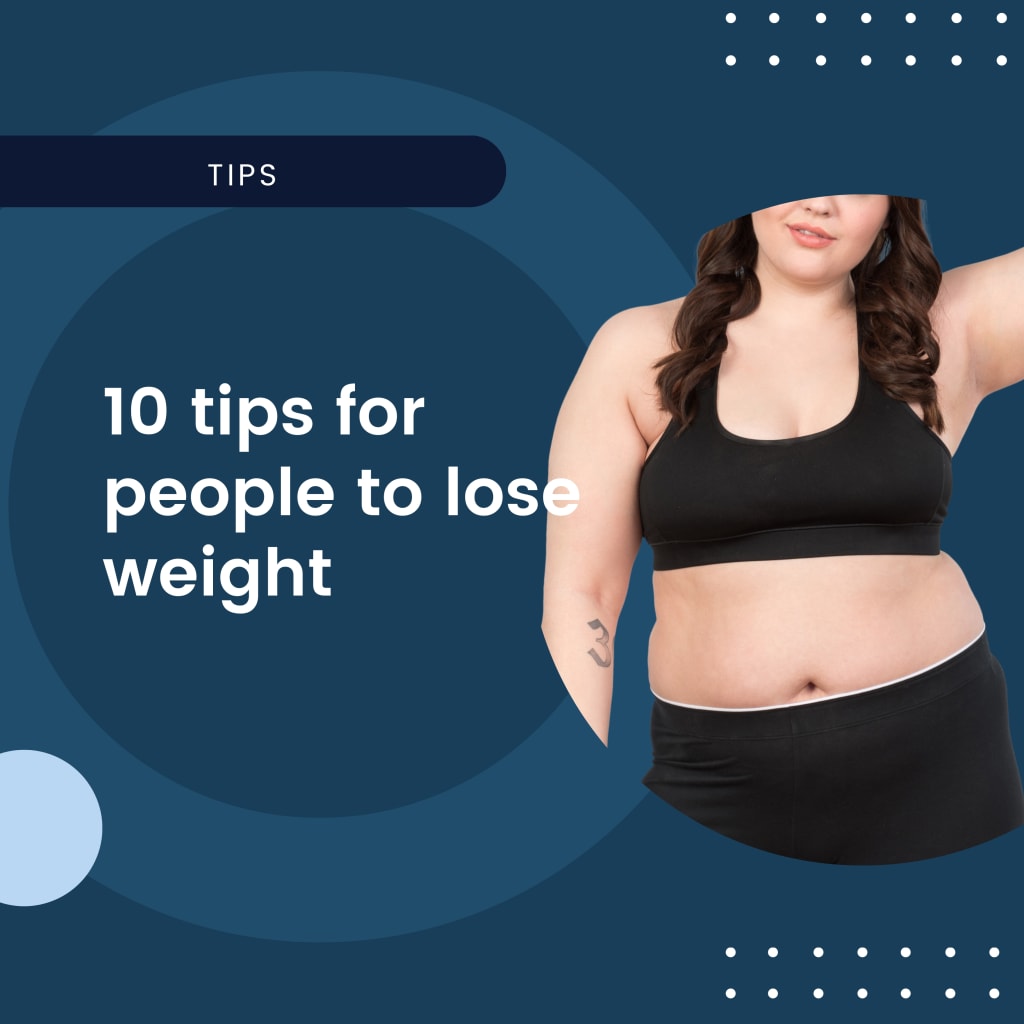10 Ways to Take Care of Your Health
Health is wealth, as the saying goes. But how can you take care of your health in a busy and stressful world? Here are 10 ways to stay healthy and prevent chronic diseases.

1. Eat a healthy diet
A healthy diet is one that provides all the nutrients your body needs to function well. It should include a variety of foods from different food groups, such as fruits, vegetables, whole grains, legumes, nuts, seeds, lean meats, fish, eggs, and dairy products. A healthy diet can help you maintain a healthy weight, lower your blood pressure and cholesterol levels, prevent diabetes and heart disease, and boost your immune system.
Some tips for eating a healthy diet are:
Eat at least five portions (400g) of fruits and vegetables per day1.
Choose whole grains over refined grains, such as brown rice, oats, quinoa, and whole wheat bread.
Limit your intake of added sugars, salt, and saturated and trans fats12.
Drink plenty of water and limit your consumption of sugary drinks, alcohol, and caffeine12.
2. Exercise regularly
Exercise is one of the best things you can do for your health. It can improve your physical fitness, mental health, mood, and quality of life. It can also reduce your risk of various chronic diseases, such as obesity, diabetes, heart disease, stroke, cancer, and depression.
The World Health Organization (WHO) recommends that adults do at least 150 minutes of moderate-intensity aerobic exercise or 75 minutes of vigorous-intensity aerobic exercise per week3. You can also do a combination of both. Additionally, you should do muscle-strengthening activities involving all major muscle groups at least twice a week3.
Some tips for exercising regularly are:
Find an activity that you enjoy and that suits your schedule and fitness level.
Start slowly and gradually increase the intensity and duration of your workouts.
Warm up before and cool down after each session.
Vary your routine to avoid boredom and plateaus.
Listen to your body and rest when needed.
3. Get enough sleep
Sleep is essential for your health. It allows your body and brain to rest and repair. It also helps regulate your hormones, appetite, metabolism, immune system, memory, learning, and mood. Lack of sleep can impair your cognitive function, increase your risk of obesity, diabetes, heart disease, stroke, and mental disorders.
The National Sleep Foundation recommends that adults get seven to nine hours of sleep per night. However, the optimal amount of sleep may vary depending on your individual needs and lifestyle factors.
Some tips for getting enough sleep are:
Stick to a regular sleep schedule and go to bed and wake up at the same time every day.
Avoid caffeine, alcohol, nicotine, and heavy meals close to bedtime.
Make your bedroom comfortable, dark, quiet, and cool.
Avoid using electronic devices such as phones, computers, and TVs at least an hour before bed.
Relax before bed with a book, music, meditation, or other calming activities.
4. Manage your stress
Stress is inevitable in life, but too much stress can harm your health. It can trigger or worsen physical and mental health problems, such as headaches, muscle tension, digestive issues, anxiety, depression, and insomnia.
Therefore, it is important to manage your stress levels and cope with stress in healthy ways.
Some tips for managing stress are:
Identify the sources of stress in your life and try to avoid or reduce them if possible.
Set realistic and achievable goals and prioritize the most important tasks.
Seek support from family, friends, or professionals when needed.
Practice relaxation techniques, such as deep breathing, yoga, massage, or mindfulness.
Engage in hobbies or activities that make you happy and give you a sense of purpose.
5. Avoid smoking
and tobacco use
Smoking and tobacco use are among the leading causes of preventable death and disease in the world. They can damage almost every organ and system in your body, including your lungs, heart, blood vessels, mouth, throat, skin, and eyes. They can also increase your risk of various cancers, such as lung,
6. Choose a suitable diet for weight loss
If you want to lose weight, you need to create a calorie deficit, which means you burn more calories than you consume. However, not all diets are equally effective or sustainable for weight loss. Some diets may be too restrictive, too complicated, or too unrealistic to follow long term.
The best diet for weight loss is one that suits your personal preferences, lifestyle, and health goals. It should also be balanced, nutritious, and enjoyable. Some examples of popular diets that may help you lose weight are:
The Mediterranean diet: This diet is based on the traditional eating patterns of people living in countries bordering the Mediterranean Sea. It emphasizes fruits, vegetables, whole grains, legumes, nuts, seeds, olive oil, fish, poultry, dairy products, herbs, and spices. It limits red meat, processed foods, added sugars, and saturated fats1.
The DASH diet: This diet stands for Dietary Approaches to Stop Hypertension. It was designed to lower blood pressure and prevent heart disease. It focuses on fruits, vegetables, low-fat dairy products, whole grains, lean meats, fish, poultry, nuts, seeds, and legumes. It limits salt, sweets, sugary drinks, and red meats1.
The low-carb diet: This diet restricts your intake of carbohydrates, such as sugars and starches, and replaces them with protein, fat, and non-starchy vegetables. There are many types of low-carb diets, such as the Atkins, ketogenic, and paleo diets. They may help you lose weight by reducing your appetite, improving your metabolism, and lowering your insulin levels2 .
The intermittent fasting diet: This diet involves cycling between periods of eating and fasting, such as 16 hours of fasting followed by 8 hours of eating, or 24 hours of fasting once or twice a week. It may help you lose weight by reducing your calorie intake, enhancing your fat burning, and improving your hormonal balance.
7. Monitor your portion sizes
Portion sizes have increased over the years, especially in restaurants and packaged foods. This can lead to overeating and weight gain. To lose weight, you need to control your portion sizes and eat only until you are satisfied, not stuffed.
Some tips for monitoring your portion sizes are:
Use smaller plates, bowls, and cups to make your portions look larger.
Fill half of your plate with non-starchy vegetables, a quarter with lean protein, and a quarter with whole grains or starchy vegetables.
Avoid eating from the package or serving bowl. Instead, put a reasonable amount of food on your plate and put the rest away.
Use measuring cups, spoons, or scales to weigh or measure your food when possible.
Read nutrition labels and pay attention to the serving size and calories per serving.
8. Drink more water
Water is essential for your health and hydration. It also helps you lose weight by boosting your metabolism, flushing out toxins and waste products, and suppressing your appetite. Drinking water before meals can help you eat fewer calories and lose more weight.
Some tips for drinking more water are:
Drink at least eight glasses of water per day, or more if you are physically active or live in a hot climate.
Carry a reusable water bottle with you wherever you go and sip from it throughout the day.
Add some flavor to your water with lemon, lime, cucumber, mint, or berries.
Replace sugary drinks like soda, juice, and sports drinks with water or unsweetened tea or coffee.
9. Plan your meals and snacks
Planning your meals and snacks ahead of time can help you stick to your weight-loss goals and avoid temptation. It can also save you time and money by reducing food waste and impulse buying.
Some tips for planning your meals and snacks are:
Make a weekly menu based on your preferences, budget, and schedule.
Make a shopping list based on your menu and buy only what you need.
Cook large batches of food on weekends and freeze or refrigerate them for later use.
Pack your lunch and snacks for work or school to avoid buying unhealthy options.
Use apps or websites to track your calories and nutrients.
10. Seek support and accountability
Losing weight can be challenging and sometimes frustrating. Having someone who supports you and holds you accountable can make a big difference in your weight-loss journey. It can help you stay motivated, overcome challenges, and celebrate your successes.
Some tips for seeking support and accountability are:
Join a weight-loss program or group that offers guidance, education, and peer support.
Ask a friend, family member, or co-worker to be your weight-loss buddy and check in with each other regularly.
Share your goals and progress with your social media followers or online communities.
Consult a professional, such as a registered dietitian, a certified personal trainer, or a health coach, for personalized advice and feedback.
Conclusion
Taking care of your health is not only beneficial for your well-being, but also for your weight loss. By following these 10 ways to stay healthy, you can improve your overall health and achieve your weight-loss goals. Remember that weight loss is a journey, not a destination. Be patient, consistent, and positive, and you will see the results you desire.






Comments
There are no comments for this story
Be the first to respond and start the conversation.